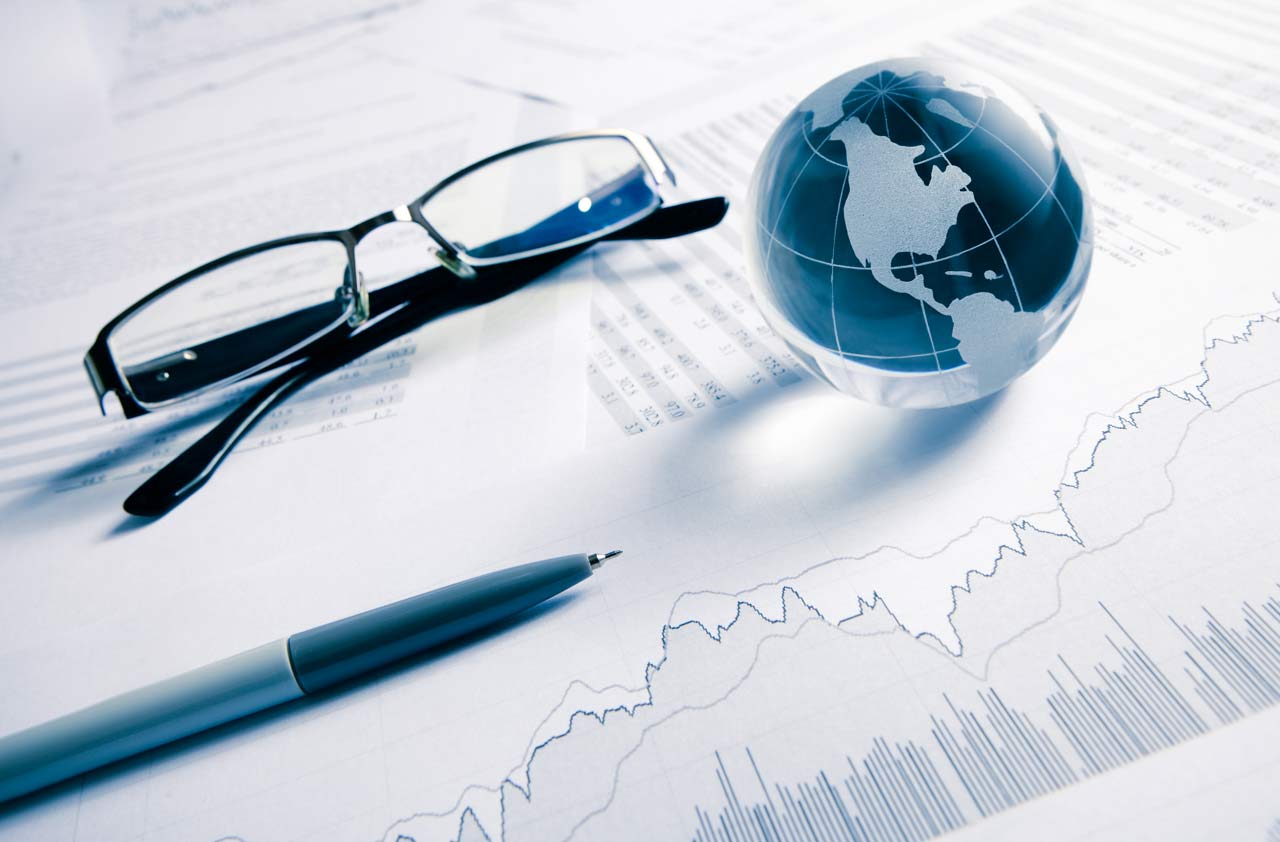Depend on Market Efficiency – Not Pundits – to Help Protect Your Portfolio
The stock market is an amazing thing, with so many moving parts that it's impossible to predict. So don't even try to determine what it's going to do next, and don't believe people who say they can. Here's what to do instead.

Profit and prosper with the best of Kiplinger's advice on investing, taxes, retirement, personal finance and much more. Delivered daily. Enter your email in the box and click Sign Me Up.
You are now subscribed
Your newsletter sign-up was successful
Want to add more newsletters?

Delivered daily
Kiplinger Today
Profit and prosper with the best of Kiplinger's advice on investing, taxes, retirement, personal finance and much more delivered daily. Smart money moves start here.

Sent five days a week
Kiplinger A Step Ahead
Get practical help to make better financial decisions in your everyday life, from spending to savings on top deals.

Delivered daily
Kiplinger Closing Bell
Get today's biggest financial and investing headlines delivered to your inbox every day the U.S. stock market is open.

Sent twice a week
Kiplinger Adviser Intel
Financial pros across the country share best practices and fresh tactics to preserve and grow your wealth.

Delivered weekly
Kiplinger Tax Tips
Trim your federal and state tax bills with practical tax-planning and tax-cutting strategies.

Sent twice a week
Kiplinger Retirement Tips
Your twice-a-week guide to planning and enjoying a financially secure and richly rewarding retirement

Sent bimonthly.
Kiplinger Adviser Angle
Insights for advisers, wealth managers and other financial professionals.

Sent twice a week
Kiplinger Investing Weekly
Your twice-a-week roundup of promising stocks, funds, companies and industries you should consider, ones you should avoid, and why.

Sent weekly for six weeks
Kiplinger Invest for Retirement
Your step-by-step six-part series on how to invest for retirement, from devising a successful strategy to exactly which investments to choose.
Hardly a day goes by without some self-proclaimed expert making lofty, and sometimes outrageous, predictions in the media about where the markets are heading and what you should do to help protect your portfolio.
You may have noticed their forecasts frequently include dire warnings of Armageddon in the markets. After all, that’s what makes headlines, gets them on those news shows and ultimately sells their services.
Typically, these folks work in the active management industry as analysts, portfolio managers, CEOs or some other position in which they’re paid to hunt for hot stocks and bonds. They need you to need them.
From just $107.88 $24.99 for Kiplinger Personal Finance
Become a smarter, better informed investor. Subscribe from just $107.88 $24.99, plus get up to 4 Special Issues

Sign up for Kiplinger’s Free Newsletters
Profit and prosper with the best of expert advice on investing, taxes, retirement, personal finance and more - straight to your e-mail.
Profit and prosper with the best of expert advice - straight to your e-mail.
I’m here to argue that you don’t.
I’m a proponent of evidence-based investing — and the evidence is compelling that investors are more successful when they ignore actively managed funds and invest in a diversified portfolio with an appropriate asset allocation. There’s no hype, no speculating and no gambling necessary. There are some heavy hitters whose research backs me up.
They include Dr. Eugene Fama, who won the Nobel Memorial Prize in Economic Sciences in 2013. Fama first wrote about the efficient-market hypothesis in 1965. That was decades before the Internet and a 24-hour news cycle; and yet, already it was believed that securities markets were extremely efficient in reflecting news as it spread and incorporating that information into stock prices.
Of course, information now goes public in many ways: television, social media, web news, email and, yes, old-fashioned word of mouth. But the outcome is pretty much the same: With the exact same information, some market participants will buy a particular stock, while others will decide to sell. If they come to an agreement on a price, a trade takes place.
However, that’s not all that goes into the pricing of a stock, which then translates into the pricing of the market as a whole. What about an individual’s plans and circumstances? Aunt Betty’s car blows a gasket, so she sells some stocks to pay the mechanic. Newlyweds Jack and Barb cash out their investment portfolio to help with the purchase of their first home. Bob down the street just got a huge promotion, and now he has a lot more money to invest and buy stocks. Meanwhile, Sally just turned 70½ and must start taking required minimum distributions from her IRA.
These highly personal wants and needs are all factored into stock market prices.
We also have to talk about the production and consumption of goods and services. For example, let’s say you go on vacation and forget to pack your underwear, so you run to the local chain store to buy a few pairs. You just made an unplanned transaction and, in so doing, contributed to that chain’s market value. If that underwear was made in Malaysia, you also contributed to that manufacturing sector. That simple transaction had an impact across the globe. Now multiply that by billions of transactions each day.
There are more than 7½ billion people on this planet. All with their own hopes, dreams and needs. All contributing to the global markets. All reacting to information that is readily available.
That’s why the market is so amazing. It is truly an efficient system that can manage all this information and effectively price it in less than a second. The billions of individual transactions going on every day on both sides of the market — buying and selling — quickly and accurately reflect the price and the current information at that exact moment in time.
Is mispricing possible? Yes, a stock could be mispriced at a single moment in time. But the market will quickly and accurately correct that mispricing — so quickly that it would be almost impossible to benefit from a mispriced stock.
How can anyone know, with some semblance of accuracy, the hearts and minds of 7½ billion people and how they will affect the day-to-day or month-to-month price of individual stocks and the market as a whole?
A simple Google search turns up hundreds of articles on the active vs. passive investing debate. Most will tell you active management fails to beat the benchmark index roughly 80% of the time. According to the SPIVA U.S. Scorecard, over the five-year period ending June 30, 2017, 82.38% of large-cap managers, 87.21% of mid-cap managers and 93.83% of small-cap managers lagged their respective benchmarks.
Which means some managers do beat their benchmarks. But here’s the problem: It’s not always the same managers year after year. So, we’re back to speculation and gambling and trying to predict the future — this time trying to predict which manager is going to outperform a particular index. What a waste of time and energy!
What should you do instead?
- Believe in the markets over the long term. It’s impossible to predict the performance of an individual stock or the market as a whole. But you can trust in the efficiency of the market as prices reflect all known information.
- Diversify across many asset classes. Diversification is your friend. Resist the temptation to put all or most of your money into one or two hot stocks or sectors.
- Stay disciplined and rebalance. Don’t let emotions dictate your stock market moves. Keep your portfolio on track as you work toward your goals.
Remember, no one can predict the future, and listening to short-term or alarmist forecasts may not make you a successful investor over the long term. As the markets do what they do — moving up, down and sideways — stick to a plan that’s designed to help meet your personal needs.
Kim Franke-Folstad contributed to this article.
Investing involves risk, including the potential loss of principal.
Profit and prosper with the best of Kiplinger's advice on investing, taxes, retirement, personal finance and much more. Delivered daily. Enter your email in the box and click Sign Me Up.

Jeffrey D. Montgomery is the founder and president of Montgomery Financial Services LLC (www.mfswealth.com). He works primarily with pre-retirees, retirees and affluent small-business owners, helping them grow, protect and distribute their financial assets.
-
 When Estate Plans Don't Include Tax Plans, All Bets Are Off
When Estate Plans Don't Include Tax Plans, All Bets Are OffEstate plans aren't as effective as they can be if tax plans are considered separately. Here's what you stand to gain when the two strategies are aligned.
-
 Relying on Real Estate in Retirement? Avoid These 3 Mistakes
Relying on Real Estate in Retirement? Avoid These 3 MistakesThe keys to successful real estate planning for retirees: Stop thinking of property income as a reliable paycheck, start planning for tax consequences and structure your assets early to maintain flexibility.
-
 These Small Money Habits Really Can Plant Roots
These Small Money Habits Really Can Plant RootsFebruary gets a bad rap for being the month when resolutions fade — in fact, it's the perfect time to reset and focus on small changes that actually pay off.
-
 When Estate Plans Don't Include Tax Plans, All Bets Are Off: 2 Financial Advisers Explain Why
When Estate Plans Don't Include Tax Plans, All Bets Are Off: 2 Financial Advisers Explain WhyEstate plans aren't as effective as they can be if tax plans are considered separately. Here's what you stand to gain when the two strategies are aligned.
-
 Counting on Real Estate to Fund Your Retirement? Avoid These 3 Costly Mistakes
Counting on Real Estate to Fund Your Retirement? Avoid These 3 Costly MistakesThe keys to successful real estate planning for retirees: Stop thinking of property income as a reliable paycheck, start planning for tax consequences and structure your assets early to maintain flexibility.
-
 I'm a Financial Planner: These Small Money Habits Stick (and Now Is the Perfect Time to Adopt Them)
I'm a Financial Planner: These Small Money Habits Stick (and Now Is the Perfect Time to Adopt Them)February gets a bad rap for being the month when resolutions fade — in fact, it's the perfect time to reset and focus on small changes that actually pay off.
-
 Social Security Break-Even Math Is Helpful, But Don't Let It Dictate When You'll File
Social Security Break-Even Math Is Helpful, But Don't Let It Dictate When You'll FileYour Social Security break-even age tells you how long you'd need to live for delaying to pay off, but shouldn't be the sole basis for deciding when to claim.
-
 I'm an Opportunity Zone Pro: This Is How to Deliver Roth-Like Tax-Free Growth (Without Contribution Limits)
I'm an Opportunity Zone Pro: This Is How to Deliver Roth-Like Tax-Free Growth (Without Contribution Limits)Investors who combine Roth IRAs, the gold standard of tax-free savings, with qualified opportunity funds could enjoy decades of tax-free growth.
-
 One of the Most Powerful Wealth-Building Moves a Woman Can Make: A Midcareer Pivot
One of the Most Powerful Wealth-Building Moves a Woman Can Make: A Midcareer PivotIf it feels like you can't sustain what you're doing for the next 20 years, it's time for an honest look at what's draining you and what energizes you.
-
 I'm a Wealth Adviser Obsessed With Mahjong: Here Are 8 Ways It Can Teach Us How to Manage Our Money
I'm a Wealth Adviser Obsessed With Mahjong: Here Are 8 Ways It Can Teach Us How to Manage Our MoneyThis increasingly popular Chinese game can teach us not only how to help manage our money but also how important it is to connect with other people.
-
 Looking for a Financial Book That Won't Put Your Young Adult to Sleep? This One Makes 'Cents'
Looking for a Financial Book That Won't Put Your Young Adult to Sleep? This One Makes 'Cents'"Wealth Your Way" by Cosmo DeStefano offers a highly accessible guide for young adults and their parents on building wealth through simple, consistent habits.
